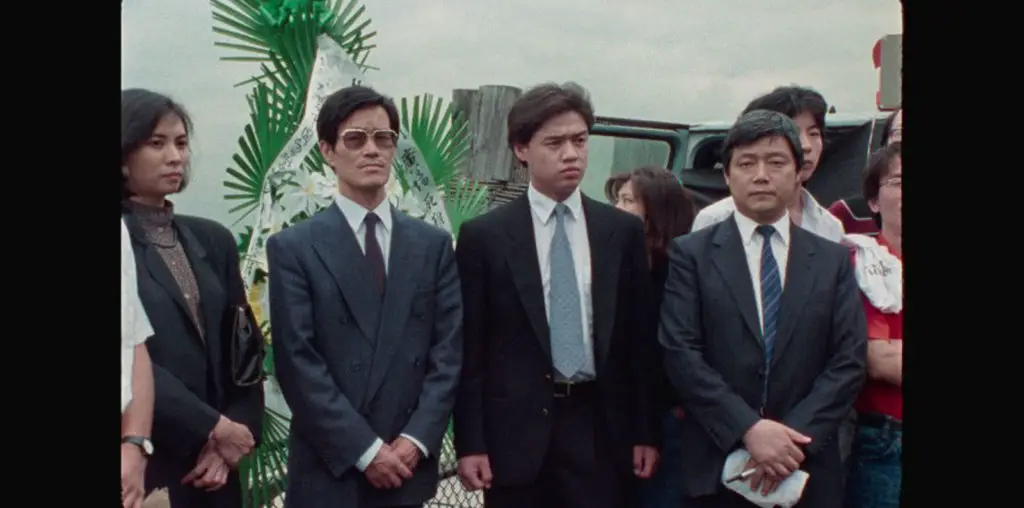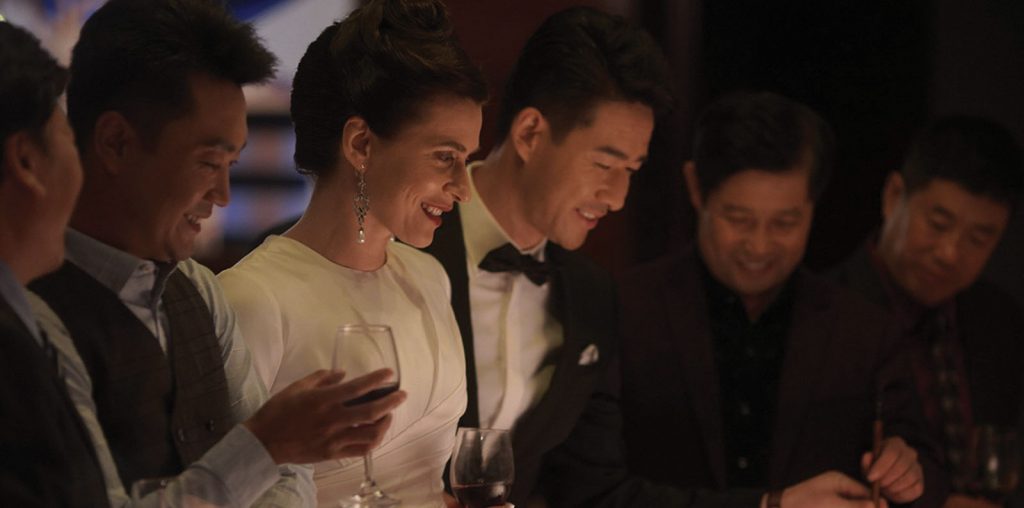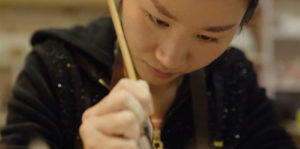
TRIBECA FILM FESTIVAL 2022 REVIEW! I sincerely wish I possessed the eloquence to accurately articulate the beauty, sorrow, and power that resonates within the letters, poems, and songs hallmarking the journey in Hidden Letters. Taking the niche history of a secret language invented between Chinese women, filmmakers Violet Du Feng and Zhao Qing have painted a magnificent portrait of women in China, exponentially magnifying its scope to include women around the world.
The documentary showcases Simu Wu and Xin Hu, two Chinese women balancing their lives as independent modern women against the overwhelming burden of social tradition. Through this dichotomy, they explore their collective love for Nüshu — a thousand-year-old syllabic text created by Chinese women who had been forbidden for generations to read or write. The film follows Wu and Hu through pivotal times of their lives, parsing how Nüshu helps them take stock of who they are and who they want to be. These paths are interwoven with how Nüshu is being brought into and used in the modern era.
With every moment we come to better understand Wu and Hu, we also come to better understand Nüshu is beyond a language. It is a form of pure expression, reflecting heavily on the society which forced the language’s creation. One of the most poignant moments within Hidden Letters is when Nüshu master He Yanxin — who is featured prominently — expresses how her mother’s version of Nüshu was far weightier than hers. When understanding even a fraction of the history of women’s subservience in Chinese society, which is laced artfully throughout the experience, this small revelation exponentially compounds the misery behind the beautiful phonetic pronunciation. It better defines the sisterhood that kept these words and stories alive. But what makes this realization even more sorrowful is that we come to see how Nüshu is commercialized and exploited in the modern era. Unsurprisingly, this is mostly done by men.
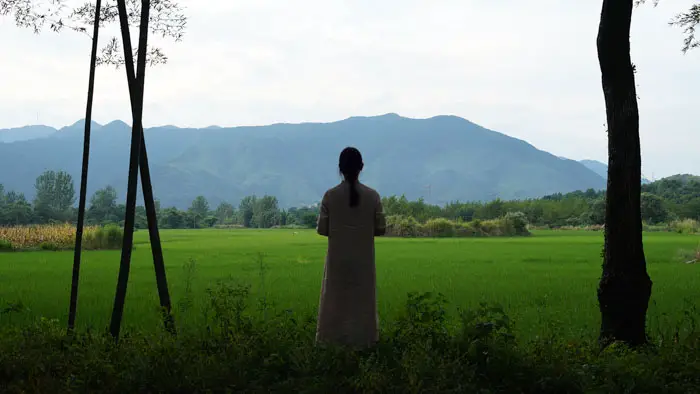
“…Nüshu — a thousand-year-old syllabic text created by Chinese women who had been forbidden for generations to read or write.”
The film is an understated, extraordinary voyage, especially for those who’ve only experienced China through the kaleidoscopic lens of news and entertainment. It’s a contemplative journey between two powerful and conflicted women, providing a considerable amount of backstory on the language and the evolution of Chinese social progress. It soon expands far beyond a pair of microcosms to explore the whole of women in the modern world, and what we ultimately walk away with is a tale of opposites. Even while these women are praised by colleagues and family for their contributions to Chinese culture because of their studies with Nüshu, we just as often see how these women and this definitive language are undervalued, misunderstood, and misused.
But the film’s not united in its definition of Nüshu as a language or movement. Hidden Letters expresses numerous perspectives from men and women alike, and how they perceive the language changes depending on the interviewee. This is possibly the strongest element of the whole documentary. Perspectives are complicated and complex and what we experience is an odyssey played out in alternating chapters.
Feng and Qing have created a masterstroke of poetic cinema, delivering a homogenous audio/visual experience that vastly augments the projected importance of their living and literary subjects. The wonderfully methodic pacing of John Farbrother’s editing is buttressed by Chad Cannon and Leona Lewis’s beautifully rendered (and expertly economical) musical score, which is all the more powerful when overlaid with sung Nüshu lyrics.
I have rarely been conflicted as deeply as I am with a film. I am conflicted as a human being. As the gorgeous brushstroke animation plays around the closing credits, I was left to ponder on the world we as humans have created. What we’ve seen is profoundly ugly, yet we’re left at the conclusion with a strange brand of hope. Hidden Letters walks us through a sorrowful past, the clashes of the present, and contemplates widely on the possibilities that await us in the future.
Hidden Letters premiered at the 2022 Tribeca Film Festival.
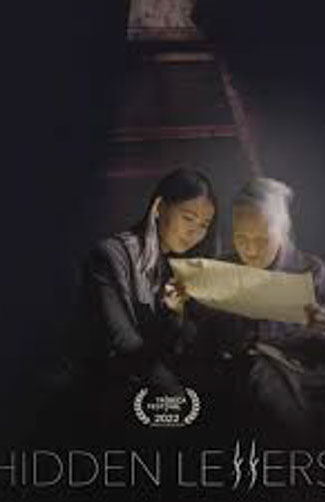
"…a masterstroke of poetic cinema..."
